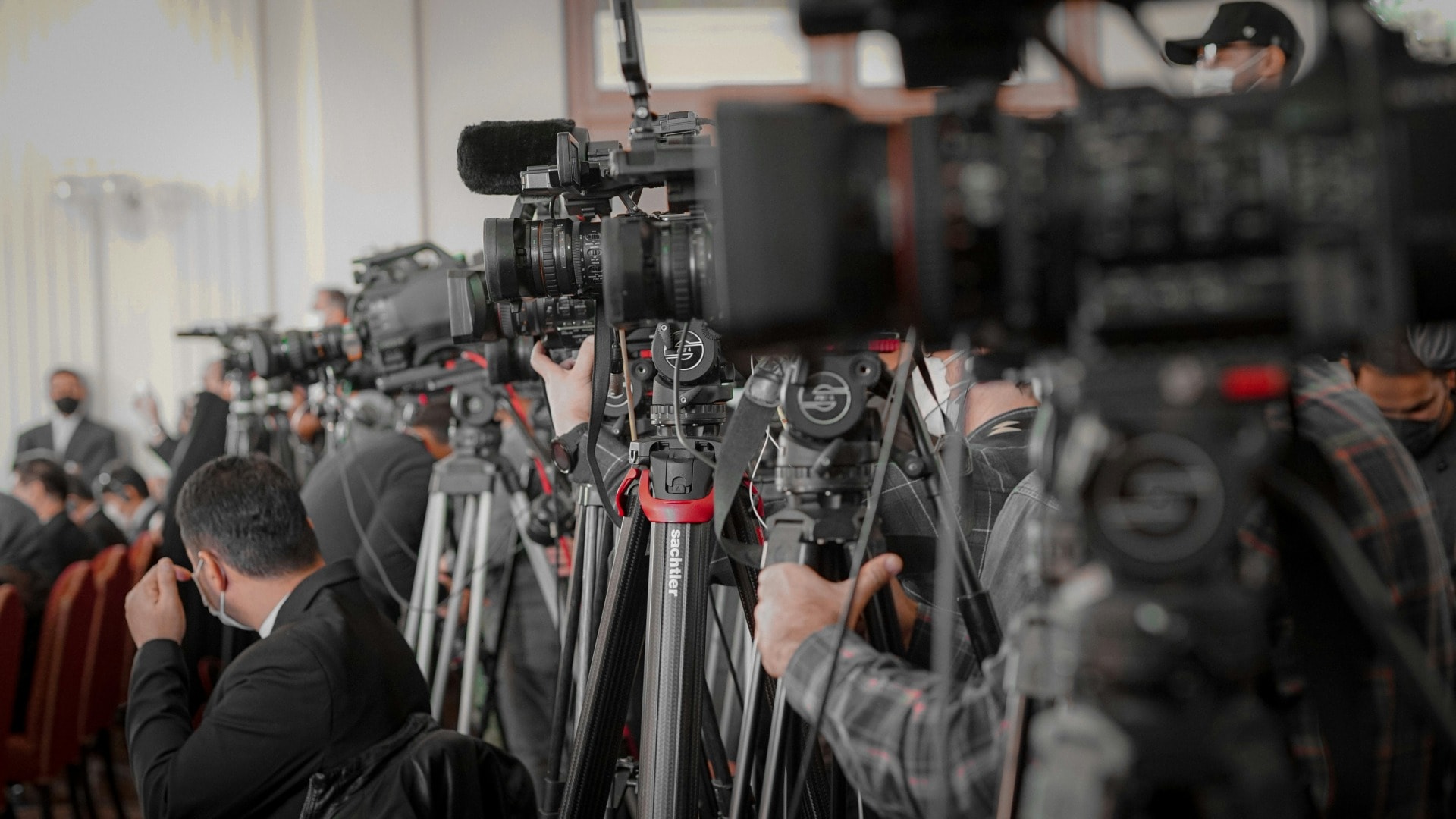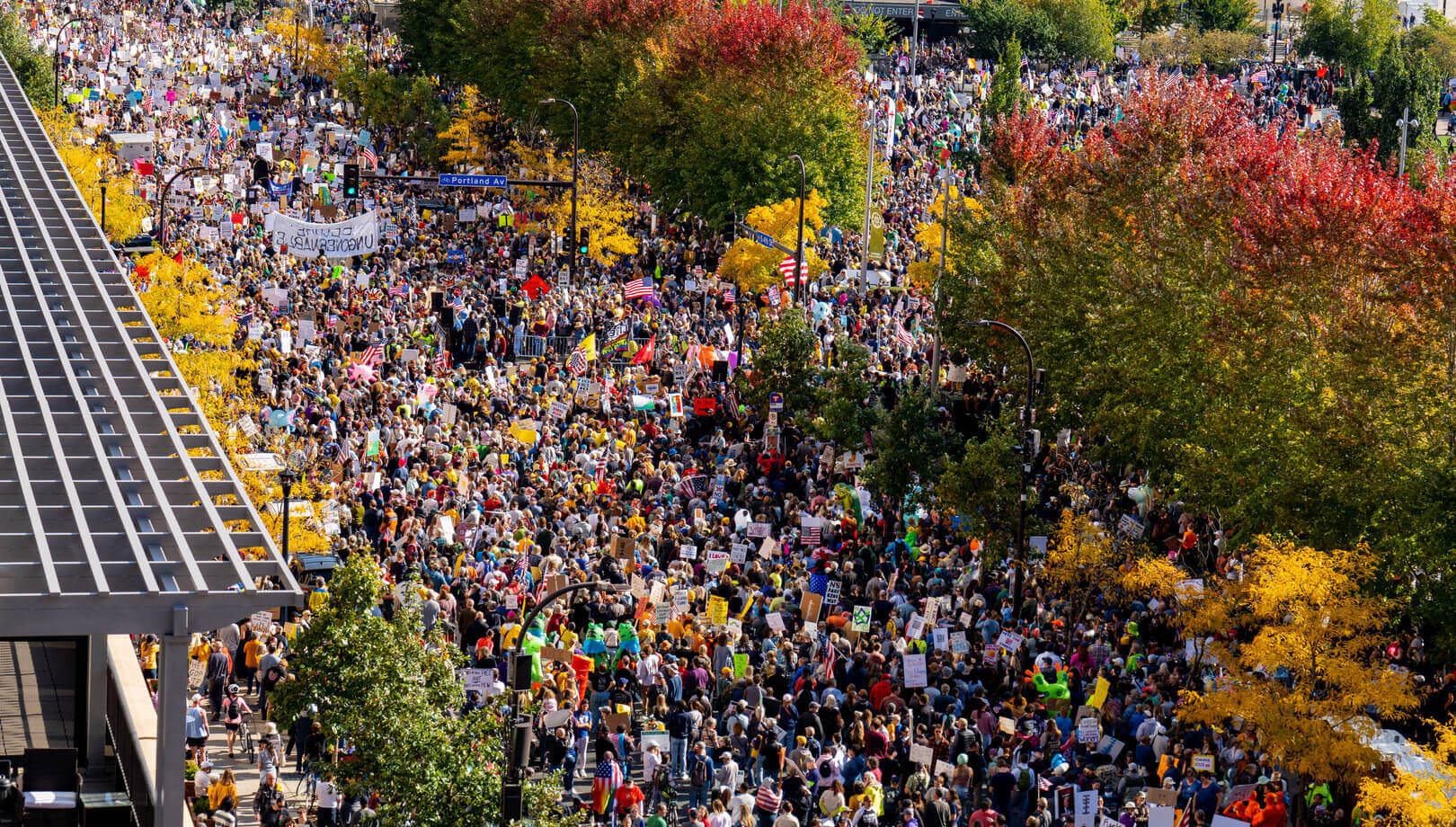Kidnapping, torture, detention and harassment are just some of the threats some journalists face on a daily basis – simply for doing their jobs. In the past 15 years alone, over 1,500 journalists have been killed around the world – killings of which nine out of ten go under the radar and unpunished.
Yesterday, Nov. 2, 2022, was the tenth International Day to End Impunity for Crimes against Journalists, marking almost a decade of global effort to safeguard media workers risking everything for their profession, as well as the freedom of expression they represent.
Nine years ago, on Saturday, Nov. 2, 2013, two French journalists were kidnapped and murdered by “unidentified commandoes” in Mali for their investigation into the country’s struggles against violence and extremism. A month later, the UN proclaimed at the General Assembly that the second day in November would forever become an annually and internationally-observed day to commemorate Radio France International’s Claude Verlon and Ghislaine Dupont.
This day honors their – and scores of other silenced journalists’ – fight for the people’s right to information, striving to end the violent crimes journalists face in the present “culture of impunity” worldwide.
More than 70 journalists have been killed this year for simply fulfilling their vital role in society. Most of these crimes go unsolved.
We must end the common culture of impunity and enable journalists to do their essential work.#ProtectJournalists
— António Guterres (@antonioguterres) November 2, 2022
Justice for journalists and freedom of expression
This UN-recognised day is widely supported around the world, as the number of mediaworkers being threatened, imprisoned or killed for their investigations of corruption, trafficking, environmental crimes and human rights violations has risen sharply in recent years.
Press freedom is under attack across the globe, but in 2020, Mexico was found to be the deadliest country for the media, with the country’s journalists more likely to be killed than those undertaking war coverage.
Members of the free press in Europe have also seen a rapid increase in violence directed towards them. Last year alone saw the death of six journalists on the continent, two of which were in the European Union member states of Greece and the Netherlands.
The Council of Europe deems ending crimes against mediaworkers – as well as the impunity unlawfully granted to the perpetrators – a “pressing political priority” across many European countries. The EU urges member states that it is “imperative that everyone involved in killings of, attacks on and ill-treatment of journalists and other media actors be brought to justice.”
In Kyrgyzstan, the EU and several the western embassies – the United Kingdom, United States, Germany, and France – also issued a joint statement of support for journalists in recognition of today’s commemoration:
“We express our respect and support to all media workers. Journalism is a form of freedom of expression, which is a fundamental right,” the world powers stated, going on to say:
“A free media is essential to a functioning society, ensuring transparency and democratic development. Therefore, it is essential for governments around the world to promote and create a safe and enabling environment for journalists to perform their work independently without undue pressure.”
A free media is essential to a functioning society, ensuring transparency and democratic development. Independent journalism supports the Kyrgyz Republic’s ambitions to develop and strengthen its democracy and economy.
— UK in Kyrgyzstan 🇬🇧🇰🇬 (@ukinkyrgyzstan) November 2, 2022
Not only have the world’s governments shown a united front against such crimes, impunity, and injustice today, but also the international community and global media.
In honour of the international day, France 24 shone the spotlight on Laurent Richard – an award-winning journalist and filmmaker – who is the Founder of the investigative media outlet, Forbidden Stories, that keeps the stories of endangered or assassinated journalists alive.
Related Articles: Iconic Journalist Shireen Abu Aqleh Killed | Another Closed Trial in Belarus: Jailed Journalist Gets 8 More Years For Alleged “State Treason” | A Record Number of Journalists Still Detained in 2021 | Nobel Peace Prize 2021 Awarded to Two Journalists Who Stood Up to Putin and Duterte
Seven years ago, Richard walked into his press agency’s office in Paris to find his colleagues at Charlie Hebdo massacred by al-Qaida terrorists for their cartoon depictions. From this experience he realized the need for “a ‘journalistic’ response to crimes committed against the press. To defeat censorship through collaborative journalism.”
Keeping the stories alive
Today the organisation is comprised of 150 journalists, within 60 news organizations, from 49 different countries, across five continents – all united in the same mission: “to protect, pursue and publish the work of other journalists facing threats, prison, or murder.”
The non-profit fosters a community of like-minded media workers with local and international media outlets, who facing censorship violence together, endeavour to continue the work of journalists who have been murdered or imprisoned for their investigations.
“Our goal is to keep stories alive and to make sure that a maximum number of people have access to independent information on crucial topics, including the environment, health, human rights, and corruption,” says Forbidden Stories.
They ensure that the findings of journalists who are no longer able to continue their work are still made visible and impactful – on a large-scale, and to a global audience.
“We can send a powerful signal to enemies of the free press: even if you succeed in stopping a single messenger, you will not stop the message,” states the NGO.
The group also provides a safe online repository where journalists can securely publish sensitive information and findings for other members of the media to access, ensuring that “journalists under threat can secure their information.”
Forbidden Stories says that “if something happens to them, we will ensure the survival of their stories, beyond borders, beyond governments, beyond censorship.”
Let’s defeat impunity with collaborative journalism! Killing the journalist won’t kill the story. Thanks @France24_en for shedding light on @FbdnStories mission #EndImpunity https://t.co/J9Des8UiZJ
— Laurent Richard (@laurentrichard0) November 2, 2022
The voice of the media is the voice of the people. On this year’s International Day to End Impunity for Crimes Against Journalists, the global free press, world leaders, and international civil community are all united together in support of the journalists risking their lives to fight for information freedom.
Recognising their sacrifice, protecting their liberty, and coming together to put an end to the violence they face is therefore of utmost importance for all societies and the work of non-profit organizations like Forbidden Stories cannot be understated in safeguarding journalists across the world.
As the non-profit says: “What is the point of killing a journalist if 10, 20 or 30 others are waiting in the wings to carry on their work? Collaboration is the best form of protection.”
— —
Correction: This article has been amended since publication to clarify the findings on the countries with the most media killings, and to add a quote from Laurent Richard to clarify the motivation behind the founding of Forbidden Stories.
Editor’s Note: The opinions expressed here by the authors are their own, not those of Impakter.com — In the Featured Photo: Press freedom demonstration in Hong Kong. Featured Photo Credit: ReflectionandSeeing/Flickr













